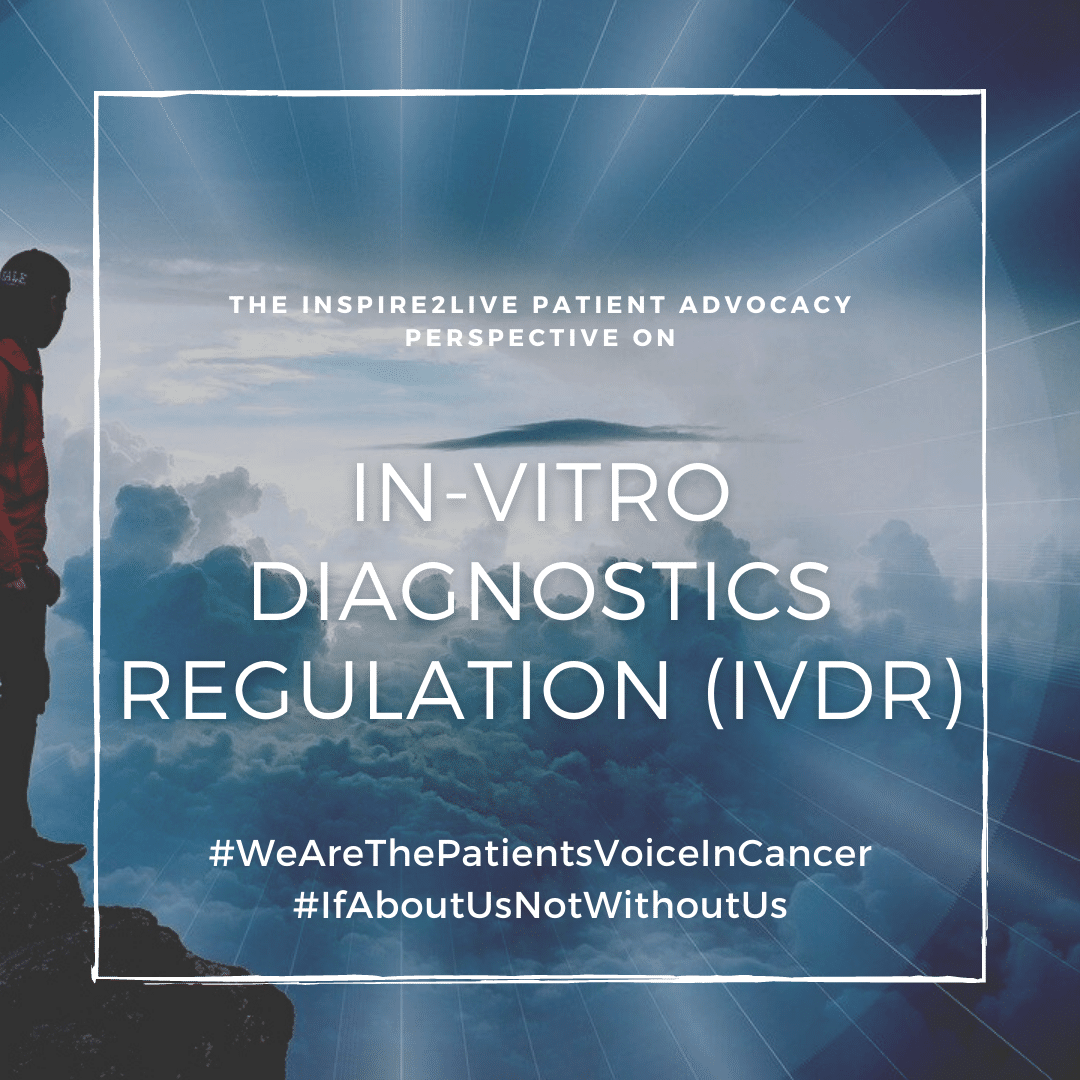 Our perspective on the upcoming European In-Vitro Diagnostics Regulation (IVDR)
Our perspective on the upcoming European In-Vitro Diagnostics Regulation (IVDR)
All our Inspire2Live patient advocates are volunteers. I lost my dad when he was only 47 and other patient advocates are patients themselves. Through our proximity to the tragedy of cancer, we are driven by the hope, knowledge and fact that we can do better in healthcare. Our world campus has scholar activists all over the world and we aim to impact citizens and patients in all areas from disease prediction, prevention, early detection, research and treatments all the way to employment reintegration and palliative care.
Inspire2Live is on a quest to bring the self-determination of the patient into healthcare decision-making and delivery. The following is the result of many discussions over the past year about the pre-existing concerns that the introduction of IVDR may cause many patients to miss out on crucial testing. It is counter-intuitive to think that EU-wide regulation would make it even harder for patients to receive crucial diagnostic care. Two immediate concerns exemplifying this are:
- The concerns of the immediate potential negative impact: there is simply no infrastructure which safeguards the transition to compliance. Do labs across the EU know where they stand? What is required with regards to Laboratory Developed Test (LDT) use? Will CE-marked IVDs be able to make the deadlines despite a shortage of Notified Bodies[1]? One conclusion is certain: in case of LDT and CE IVD(R) failure, then patient diagnostic care will suffer!
- Investment: the diagnostic ecosystem needs improvement at the local and regional level. We need to move away from the idea that testing shouldn’t cost more than 50 EUR per patient. There is far too much important science and technology in diagnostics to continue to expect that we can get away with investing so little. Both governmental institutions and industry need to do more to support these technologies to benefit patients and public health.
Our overarching vision at this stage is to move from drug-centric to patient-centric: we cannot be talking about diagnostic practices without taking a stand on what we think should be best practice for the patients’ interest in diagnostic care. In this way, the European Commission should take a stand to accompany their regulations on testing practices. In the era of precision medicine, this means not only about making devices compliant but also how we should test our patients. In the case of cancer patients, their disease should be mapped as comprehensively as possible with Whole Genome Sequencing (WGS) and Whole Exome Sequencing (WES).
Inspire2Live is a strong advocate for comprehensive testing. In The Netherlands we are gaining ground at the policy level to ensure that each patient is comprehensively tested by WGS/WES starting in the metastatic setting. We would like to make sure that reimbursement for patients with advanced disease gives them access to the best possible mapping of their disease to achieve the best possible outcome for each and every patient. In cases when this is not possible, other approaches should be available. The increasing value of liquid biopsy (LBx) and tests using other biofluids should be incentivized and implemented properly.
We need a healthcare infrastructure that isn’t built on the needs of interventions themselves, but on the fact that each patient is the point of departure for optimal healthcare delivery. In the era of precision medicine, science and technology are ready for a more dynamic approach to application. Policies and regulations that incentivize and that are timeless, because in the end, it’s all about the patient!
[1] Organisations designated by an EU country to assess the conformity of certain products before being placed on the market.
Piarella Peralta
Patient Advocate


 Our perspective on the upcoming European In-Vitro Diagnostics Regulation (IVDR)
Our perspective on the upcoming European In-Vitro Diagnostics Regulation (IVDR)